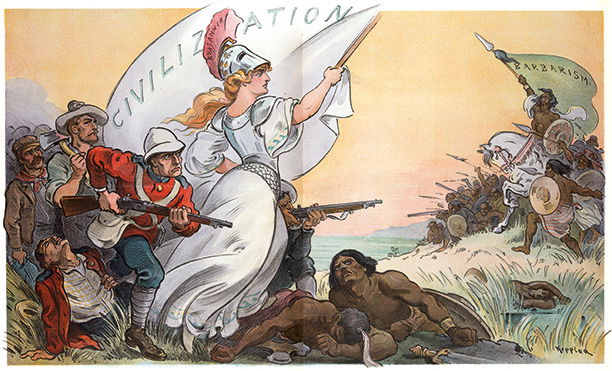... Astonishingly, some form of “right to matrimonial rape” is still in force in most Commonwealth countries. It exists alongside other archaic laws, many aimed at gay people, which have a draconian effect on intimate relationships. Gay men are the most frequent targets but the stigma affects lesbians as well, even in jurisdictions where sexual relations between women are not specifically prohibited.
David Cameron has promised to raise the issue at the Commonwealth heads of government meeting in Malta next weekend, armed with a report from the Human Dignity Trust on the effects of discriminatory laws on LGBT people.
In the past few years, the situation has got worse. India decriminalised same-sex relationships between consenting adults in 2009, but this was reversed by the Supreme Court in 2013. New laws in countries such as Uganda, which last year increased sentences for people found guilty of same-sex relationships, are sometimes used to suggest that prejudice is rooted in local culture. But it’s also a legacy of colonialism, and its legal framework based on traditional English law that treats gay people and women as second-class citizens.
This is rarely acknowledged when right-wing historians talk wistfully about the British empire. Most Commonwealth states retain laws that reflect punitive Victorian (and earlier) attitudes: gay sex is illegal in 40 out of 53 countries, while almost half fail to recognise that men can be raped too.
Think about this country, before homosexuality was decriminalised in 1967, when gay people had to conceal relationships and live in fear of blackmail; that’s the situation in one Commonwealth country after another. Except that it’s worse: effective HIV education is next to impossible where homosexuality is stigmatised; Commonwealth states account for 30 per cent of the world’s population but have more than 60 per cent of HIV cases...
Joan Smith, Independent On Sunday.
Yes, of course anti-gay laws will hinder efforts to fight Aids, but your piece raises a few obvious questions, Joan...
How often are these laws enforced; systematically, regularly, erratically, never? [Please break this down by country].
If the anti-gay laws are to blame then how come; 'the stigma affects lesbians as well, even in jurisdictions where
sexual relations between women are not specifically prohibited.'
Colonial laws were written a century ago, and the end of the British
Empire began generations ago, are you sure we can carry on blaming
everything on these?
Doesn't David Cameron telling them to change reveal a neo-colonial mindset, too?
How do you think the respective countries' leaders being bossed around by 'Greater Britain' will go down with their subjects/citizens? And therefore, do you think their politicians will welcome this or denounce it?
Can you explain the high incidence of HIV in Sub-Saharan African countries that aren't members of the Commonwealth?
Thanks.
Sunday, 22 November 2015
Subscribe to:
Post Comments (Atom)







When is the Head of the Commonwealth going to "come out" and say that discriminating against gay people is unacceptable?
ReplyDelete